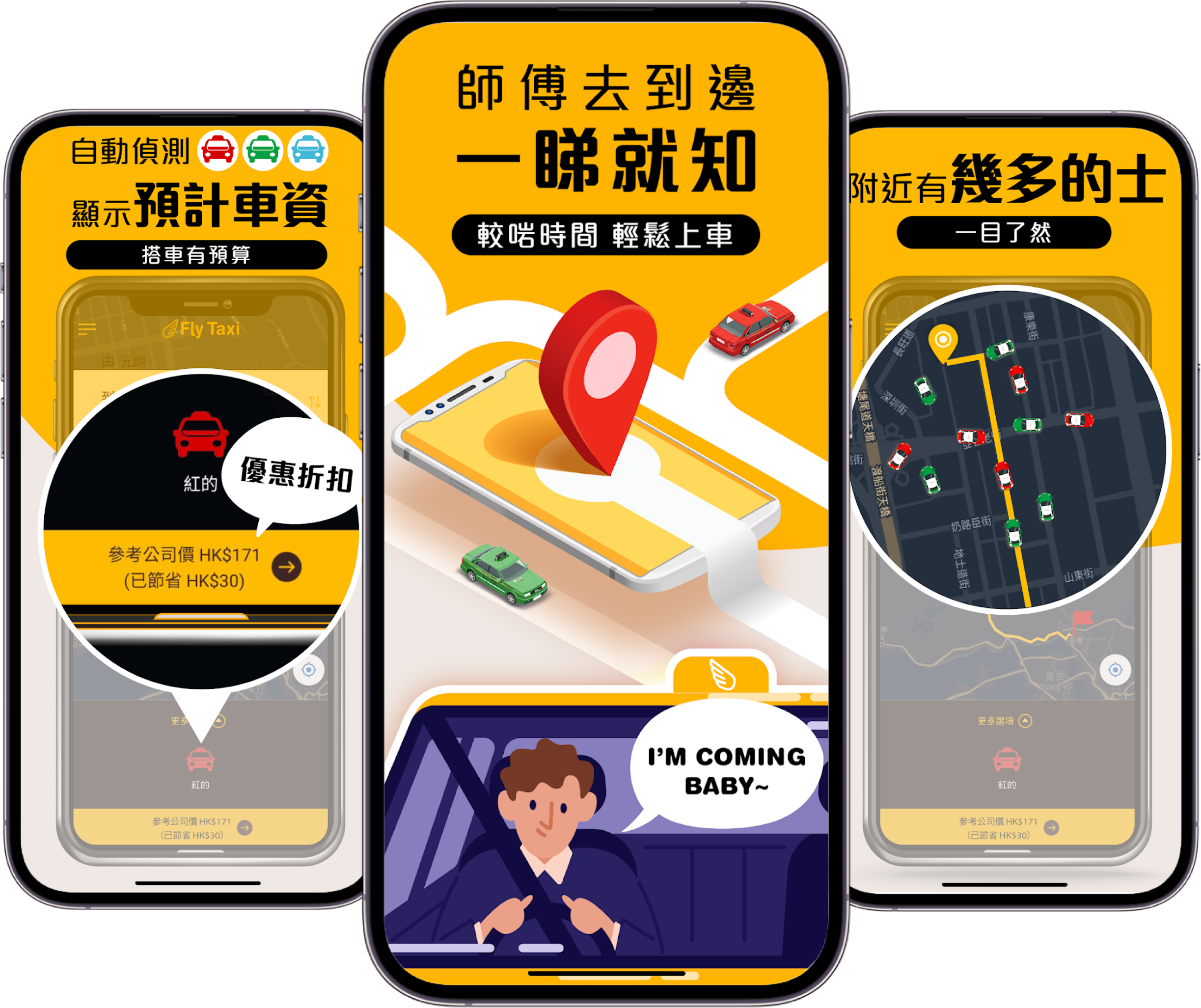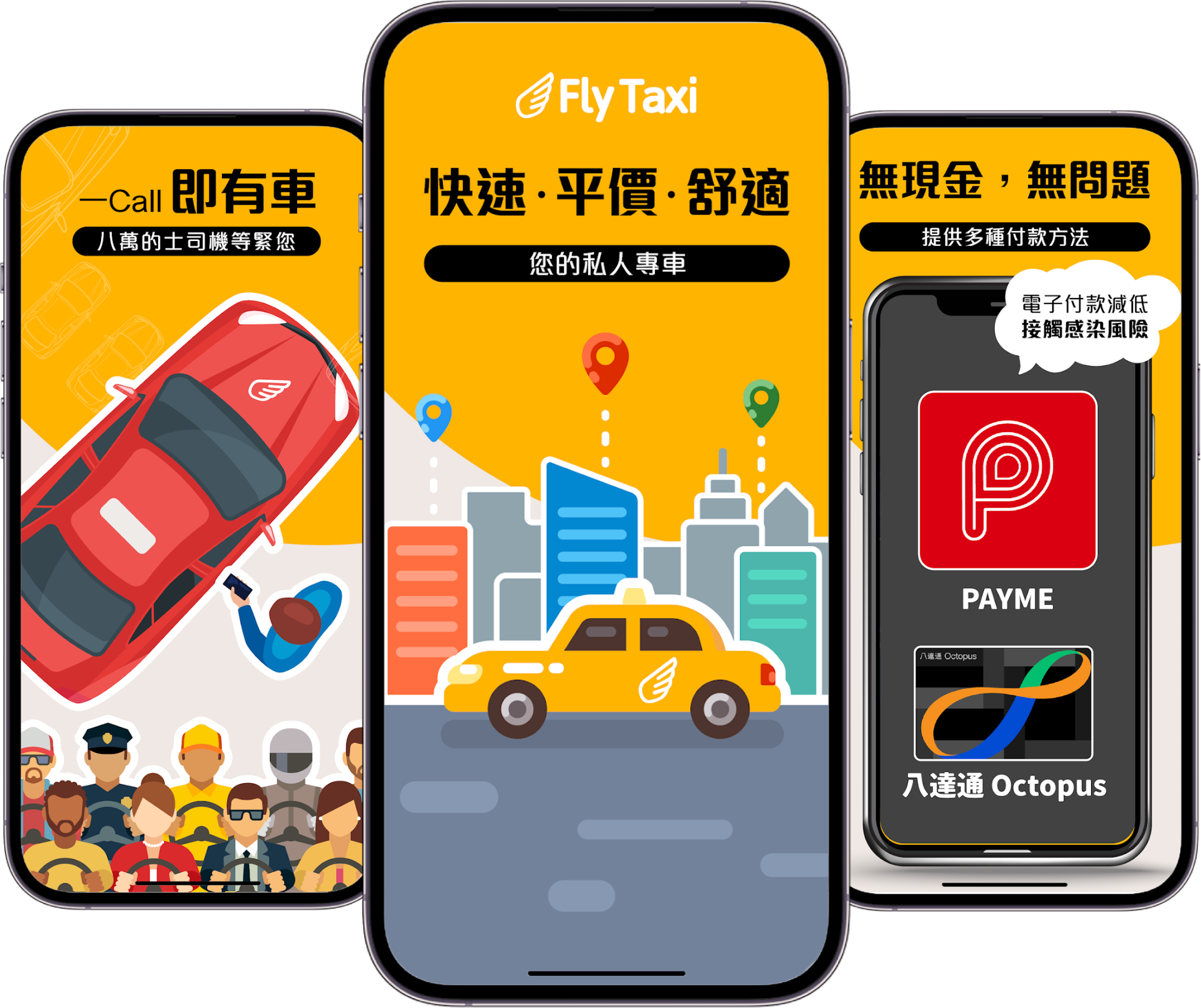INDUSTRY
Travel
FEATURES
- Real-Time Tracking
- Multiple Payment Options
- Ride-Sharing or Pooling
- Rating and Review System
TECHNOLOGY STACK

iOS

Android

Swift

Java

Google Map
About the Client
Fly Taxi is a popular ride-hailing service in Hong Kong that offers affordable and reliable taxi rides. It can be easily accessed through a user-friendly app featuring automatic taxi identification and real-time updates on nearby taxis and their estimated arrival times. To prioritize safety, the app supports cashless payments through PayMe and Octopus Card to minimize physical contact and reduce the risk of virus transmission. Fly Taxi caters to various transportation needs, including trips to the airport, MRT subway stations, and bus stations, ensuring prompt arrivals and convenience for travelers in Hong Kong.
Challenges
Remote development and location-based testing
Creating a location-based application like Fly Taxi demanded accurate geographical data for testing and development. The team encountered challenges using 'Chrome Remote Desktop,' making it difficult to effectively simulate location-based scenarios. Traditional testing methods proved inadequate in replicating location-specific features accurately. Network delays and remote desktop configurations added complexity, leading to delayed feedback on implemented location functionalities.
Language barrier with API developers
Clear and efficient communication plays an important role in the success of any project, and Fly Taxi encountered a major challenge in this area. The client's API developers faced difficulties due to their limited English skills, leading to misunderstandings and breakdowns in communication. This language barrier disrupted information flow, requiring extra time and resources for translation. It also hindered problem-solving and understanding of API functions, further complicating the development and integration process.
Cross-platform development inconsistencies
The app had to work on iOS and Android devices, but the existing code was inconsistent between the two platforms. This discrepancy made it difficult for the team to develop smoothly, as they had to spend extra time reconciling the differences in code and logic. The lack of consistency hindered smooth development, leading to delays and a higher likelihood of encountering bugs and discrepancies in-app functionality across various devices. To address this issue, the team had to standardize the code while maintaining the distinct features of each platform.

Solution
Collaborative testing approach
The client's hands-on involvement helped us conduct remote tests for the location-based app. After overcoming initial hurdles, the client eagerly joined the testing process by linking their device to the system to perform thorough tests in different locations, improving the app's location-based features and efficiency and a thorough evaluation of the app's real-world performance.
Overcoming language barriers with technology
To address the communication barrier with the API developers, we employed a translator app, facilitating the translation between Chinese and English. This enabled clearer and more effective communication, ensuring that technical discussions, API specifications, and development feedback were accurately exchanged and understood by both parties, leading to more accurate and timely development outcomes.
Strategic code analysis
The code differences between iOS and Android platforms made maintenance and development difficult. To overcome this, the team prioritized understanding the existing code on both platforms before moving forward. This thorough analysis helped them pinpoint and resolve inconsistencies and cut down time and effort for future tasks for a unified experience on both platforms.

Results
Widespread user adoption
The Fly Taxi app has garnered 2 million users due to its high-quality, location-based services, ease of use, and overall user experience.
Ongoing client relationship
The team maintains consistent communication with the client to make ongoing improvements to the app. This long-lasting collaboration enables the app to adapt based on user input and market trends, guaranteeing that Fly Taxi stays competitive and up-to-date in the ride-hailing sector.
Improved development efficiency
Understanding the code for iOS and Android platforms took a long time initially, but the extra effort paid off by saving time later on. This made development faster, enhancing our ability to respond quickly to requests for improvements and bug fixes.




